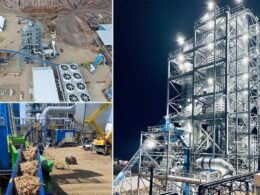New research from Harvard Business School reveals that nearly half of publicly traded companies in the United States are actively developing or selling technologies to combat climate change. Surprisingly, many of these firms—such as Dow, General Motors, Valero Energy, and Archer-Daniels-Midland (ADM)—hail from traditional, mature industries rather than emerging climate-focused firms like Tesla.
“Companies are now viewing climate solutions as a business opportunity, and their actions reflect this shift,” said Harvard Business School Professor George Serafeim, who led the study.
The findings highlight a shift in corporate America, with companies increasingly recognising climate change as an opportunity rather than merely a risk. Firms engaging in substantial climate-related efforts represent nearly $8 trillion in market capitalisation—approximately 20% of the total US market.
The research, conducted by Harvard Business School’s Data Digital Design Institute and distilled by the Institute for Business in Global Society (BiGS), identified 879 public companies working on climate technologies. These companies span diverse sectors, including energy, agriculture, transportation, and technology. Notably, about 40% are based in Republican-leaning “red states.”
Serafeim collaborated on the project with Assistant Professor Shirley Lu and Postdoctoral Fellow Simon Xu. Using an AI-powered large language model (LLM), the team analysed 10 million sentences from 20 years of corporate filings submitted to the Securities and Exchange Commission (SEC).
The team developed the Climate Solution Measure, a proprietary algorithm that evaluates how companies are creating and launching climate-focused products and services. The measure was instrumental in identifying the BiGS Climate Innovators 100, a list spotlighting firms making notable advances in climate innovation, such as sustainable aviation fuel and electric vehicles (EVs).
The study found that 45% of US public companies across major sectors are engaged in climate solutions, marking a 25-percentage-point increase since 2005. It also highlights how the uptick in climate-focused activities accelerated after the passage of the Inflation Reduction Act (IRA), with 42% of companies reporting increased efforts from 2021–2022 compared to 2019–2020.




















